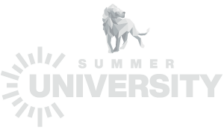Pieter Cleppe and Javier R. Portella have starred in a round table where they have discussed the role of social networks, the giants of the RR.SS and political power in the EU.
Pieter Cleppe explained that “we must understand that there is a liability regime for social networks. When the press puts out something they can sue you for the comments, the media have become exempt from that responsibility but that is changing. It is very difficult today to distinguish between social networks and communication media, therefore it does not make sense to make this distinction in the legal framework.
“The most important thing is that people can compete within social networks, one can believe that in this system there can be freedom of expression, that opinions are posted and they can flourish. However, it is getting more and more difficult, in Europe it will be difficult to make a twitter in freedom”.
Regarding digital legislation, he pointed out that “the categories are not clearly defined, the European Union has an important role in all this, it has already regulated the digital sphere but the interpretation is not at all clear. For example, what should be done is to eliminate the legislation of the cookies”.
With the associations of digital lobbies this is going to cost digital marketing six billion for companies, it is important to have this information to have filters and have partners installed so that the internet is more organized.
There is also a political dimension, “this legislation forces social networks to have portal watchers, to monitor portals. I think this is not something innocent, we are saying that the European legislation is applying it and harmonizing everything so that the member states cannot do what they want in terms of digital legislation”.
One of the laws of the European Union has included a protocol in cases of crisis, the commission can impose that certain information be disseminated prominently when there are extraordinary circumstances. “For example, during COVID, the information has been given by the authorities on networks, the European Commission has issued the statement, which is a worrying authority, that the authorities have special power to give their messages through private platforms” .
For his part, Javier R. Portella explained that a clear distinction needs to be made between types of media. “To start with the big media, the main one is TV. It must be said that all this constitutes public enemy number one. It is the stumbling block, the main obstacle that those of us who face the world as it is today and want a different world must overcome.”
It is enemy number one because “the great axes of thought that spread throughout our societies are dominated and produced by this whole set of great systems. Those features that characterize the contemporary world are those of capitalism, materialism, individualism, historicism, the rupture with the historical tradition of our peoples and the domain of technology understood in the sense of domination.
“This confrontation is not only vertical, it does not take place between the powerful from above against those from below, but in addition to this confrontation, there is transversal diffusion throughout the layers of society. We must recognize that the power with which the televisions manage to reach the population”. Javier explained.
Lastly, he recalled that you cannot live with your back to the media, “you have to participate in them no matter how disgusting it makes us feel to be next to the system's lackey journalists. We have to continue with what we do, with this route, which is the good one, we have the possibility of winning not immediately but in the long term. It is about changing the structure, the springs by which we move, we have to change the ambient air, and this cannot be done in a few months or a few years, they are far-reaching tasks such as what the change meant of the ancient world with the arrival of Christianity.
